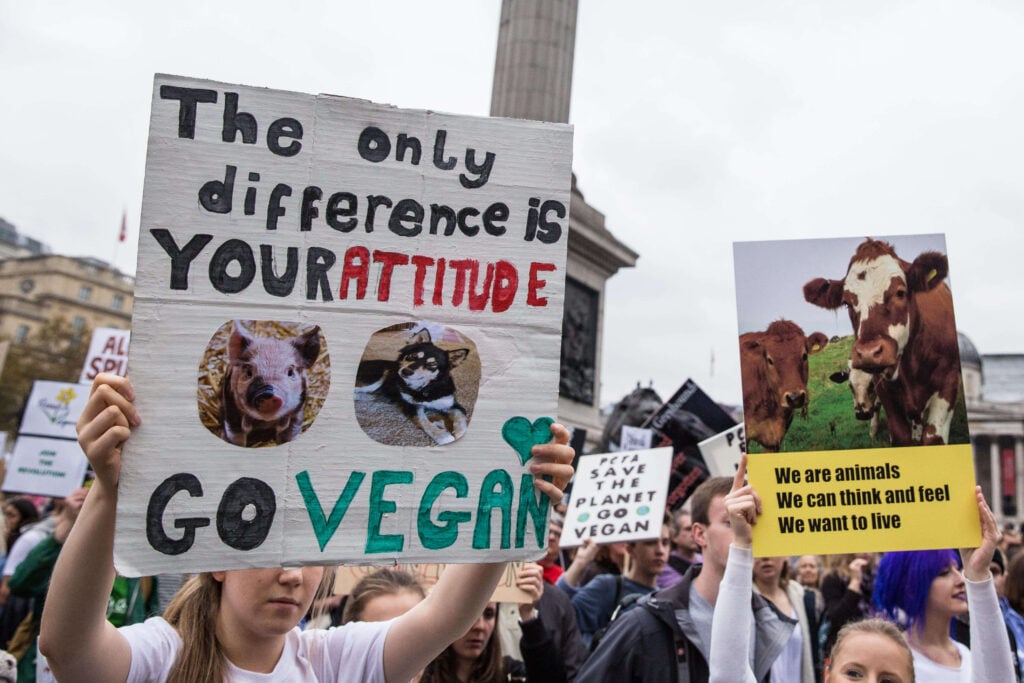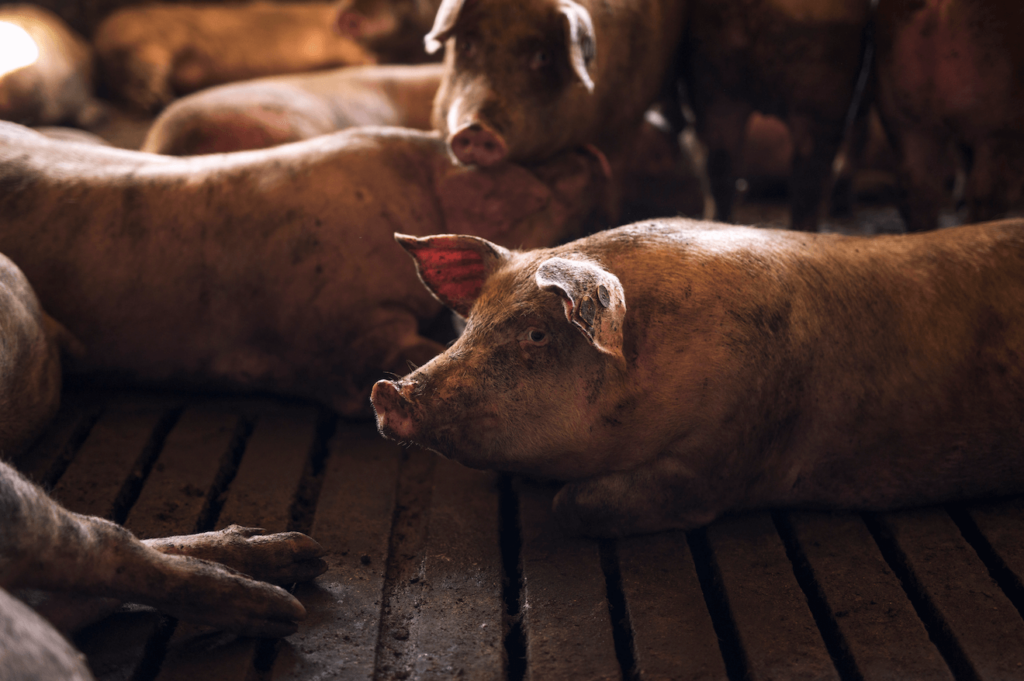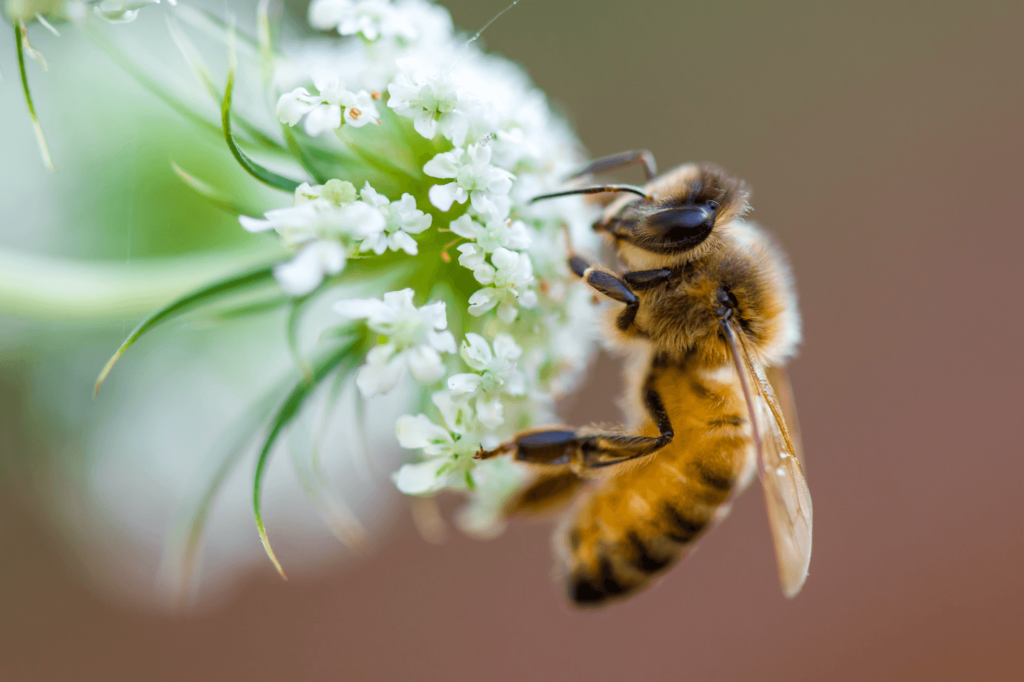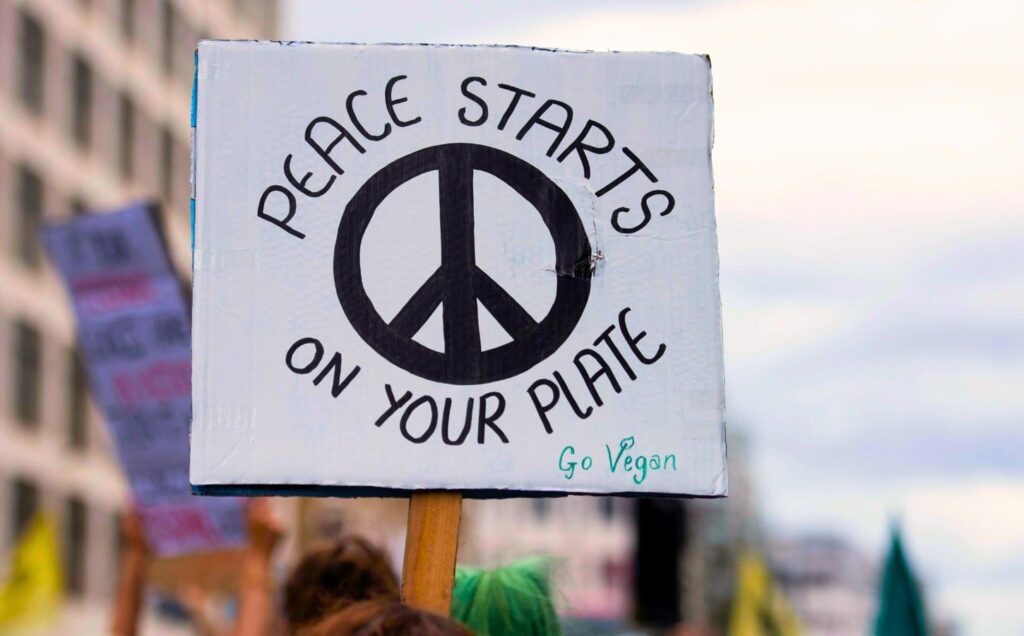The challenge we face as the vegan movement is a unique one: our role as allies to other animals is to elevate the voices of an oppressed group who don’t express themselves in human words and have no access to our political system, unless mediated by humans.
Because of this, you might think that we’re in entirely uncharted water, that the success of other freedom movements (led by the human voices of the oppressed themselves) can’t really teach us how to support fellow animals in their own liberation movement.
When it comes to cultural and legislative change, however, we can take inspiration from previous movements: they show us that when campaigns expand the frame through which we view the issue, they have the capacity to change hearts and minds on a fundamental level.
In February 2023, 52 of us from across the UK Animal Freedom movement came together for a collaborative messaging event hosted by Animal Think Tank. Across two days, NGOs, grassroots organizations, academics, and creatives shared ideas about what existing narratives we think are the most persuasive, as well as potential new narratives for Animal Think Tank to test in our public research.
We explored the successes of other freedom movements’ campaigns in reframing a “minority” issue as a societal issue, recognizing that when campaigns appeal to society’s deepest shared values, they can help change the dominant narrative, and in turn help bring about cultural and legislative change.
Marriage rights and equality became Freedom to Marry
We discussed the Freedom to Marry campaign in the US as a great example of a movement that successfully changed the narrative around same-sex marriage. For decades, marriage equality was seen as a fringe issue, and proponents struggled to gain traction in the public sphere. However, by shifting the narrative away from “rights” and “equality” for a small section of society, and reframing the issue as a matter of love, commitment and family (values that resonated with most of society), the movement gained broad public support and eventually led to the Supreme Court’s landmark ruling legalizing same-sex marriage in all 50 states.
We explored how the campaign shifted the conversation from one of injustice to a more positive one that centered on heart-held values: people in the LGBTQIA+ community should have the freedom to marry and to celebrate their love with their families and friends. Suddenly, the frame included wider society, with the campaign running ads showing a diverse range of communities, including conservative and religious people. As Evan Wolfson (founder of the campaign) put it: ”We turned this from ‘What do you think about gay people?’ to ‘What do you think about your own values?’”
Women’s right to choose became Together for Yes
We also examined the Together for Yes campaign in Ireland. This sought to change the narrative around abortion by framing it as an issue that affected all of society. By shifting the conversation away from individual “choice” and towards the idea of care, compassion, and change for the future, the campaign was able to galvanize public support and ultimately led to the repeal of Ireland’s ban on abortion.
The opposition to the movement had always recognized the persuasiveness of values-based messaging, using framing like “pro-life” and passing “heartbeat laws.” Together for Yes strategically sought to reclaim and reframe what “life” meant, emphasizing the dangers of unsafe abortion and the thousands of women’s lives that could be saved with access to safe and legal abortion.

The positive, inclusive framing of the campaign helped to broaden its appeal beyond traditional “pro-choice” supporters and attract support from those who may have previously been undecided on the issue. By emphasizing values like compassion and care, the campaign was able to shift the conversation away from polarizing rhetoric and towards a more nuanced and empathetic framing.
Much like with Freedom to Marry, Together For Yes expanded the frame in terms of who this issue affected. We reflected on how it worked to turn what was once seen as a personal and private issue into a social one, which called on collective support and spoke to shared values.
‘Asylum seekers’ became ‘people seeking asylum’
The United Nations, along with other groups and organisations, launched a storytelling campaign aimed at changing the narrative around people seeking refuge. At the messaging event we analyzed how, rather than framing the issue solely in terms of the legal obligations of countries to take in “refugees,” the campaign focused on the people seeking refuge themselves, and the idea that we are all citizens of the world who deserve to live in peace.
The campaign employed people-first language in an effort to rehumanize people affected by this issue, showing that they’re more than an act they’ve been forced to undertake as a matter of survival. Simply referring to them as “people seeking asylum” rather than “asylum seekers” reminded others that these were people, just like them, with families, jobs, likes, and dislikes. The fact they were having to seek asylum wasn’t their identity.
By reframing the “refugee crisis” as a moral issue rather than a political one, the campaign was able to appeal to people’s deep values of compassion and empathy. By focusing on the human stories of this crisis, the conversation shifted away from one of criminality and border control. It foregrounded the message that this isn’t just a problem for people seeking asylum or the countries that are hosting them, but a global issue that requires a collective response.
The messaging highlighted the idea of shared humanity and mutual benefit; helping people seeking asylum is not only the right thing to do, but also in our collective self-interest to build a more just and compassionate world.
So what about the vegan movement’s narratives?

After reflecting on how other freedom movements successfully changed the narrative and reframed the debate to gain public support and shift policy, we discussed what we, as animal advocates, can learn from these examples. We discussed how, sometimes, dominant movement narratives don’t change the way society views complex issues until they undergo a narrative shift that can generate the mass appeal and support needed for legislative change.
Our movement has already undergone significant narrative shifts over the past century: from Victorian ideas of animal cruelty being undesirable simply because it’s “uncouth” and may encourage violence to other humans, towards more holistic framing and naturalist ideas around preserving species to retain ecological balance. Though this latter narrative is still active in contemporary culture, the first quarter of the 21st century has seen new narratives taking centerstage for Animal Freedom.
The next step we took was to explore some of the current dominant narratives visible to the public from our movement: through what frames do we present the issue and do they have the potential to change public perception and create long-lasting societal change?
Go Vegan: the ethical consumer narrative
This is probably the most dominant public-facing narrative of our movement today, which is rooted in the deep narrative of individualism and consumerism. It frames animal exploitation as a product of capitalism and seeks to create system change through individual consumption choices. As a group, we felt that personal transformation is a much-needed element of wider social change, and we also acknowledged that this narrative by itself fails to address the systemic issues underlying animal exploitation.
This critique is supported by Animal Think Tank’s corpus linguistics research, which indicates that “vegan” is largely understood as a dietary choice rather than a moral or sociopolitical position. The consequences of this is other animals are virtually ignored in public discussion.
The strength of this narrative has been in making veganism more mainstream, yet it often centers on humans and personal choice rather than the suffering of other animals, or how animal oppression harms society overall. The focus on supply and demand, while important, can obscure the structural inequalities that exist within our society and risks framing the issue as a problem that lies with individuals, rather than the industry that perpetuates animal exploitation.
Environmental veganism
This narrative foregrounds the role of animal agriculture in climate breakdown and presents a move towards a plant-based diet as necessary to save the planet. Event attendees highlighted this as having been an extremely effective narrative, gaining traction thanks to the larger climate narrative it has become part of. It also has the benefit of resonating more deeply with those who are motivated by the impact on the planet more than the suffering of other animals.
Where the group felt its limitations as a narrative lie is in the fact it can be human-centric, with the focus on saving the world “for humans” alone and only placing value on other animals at a species conservation level, rather than them as individuals, and the suffering they endure under the current system.
Plant-based for personal health
This narrative was also highlighted as one that has been helpful. It has the benefit of normalizing plant-based diets and could potentially pave the way to other health-based narratives, (e.g. plant-based for mental health may have the potential to recenter the trauma of exploited animals and the devastating mental health effects on humans working in the industry).
Many in the room also felt this narrative has its limits, as it is rooted in individualism and capitalism, and is often closely linked with beauty standards and physical appearance. There was also discussion around how this narrative can sometimes misrepresent eating a plant-based diet as a “trendy lifestyle,” obscuring veganism as an important socio-political identity and moral action. And while this narrative has been effective in encouraging people to adopt a plant-based diet, many felt it was too human-focused and can inadvertently sideline the exploitation and suffering of other animals.
Zoonoses and public health risks
This narrative frames animal agriculture as a breeding ground for pathogens and highlights the health risks associated with eating animal flesh, milk, and eggs. It uses examples like the COVID-19 pandemic to show how conditions in which animals are exploited can lead to human health crises. Many at the event felt that this framing has potential, particularly in the UK: while the NHS is struggling, encouraging the uptake of healthier plant-based diets could be presented as a way to remove some of the strain of preventable illness associated with “meat” consumption.

At the event we discussed how this narrative isn’t without its problems. Again, it foregrounds human health regardless of (or even at the expense of) the health of other animals and is completely agnostic about animal exploitation. While we did discuss the idea that the change in attitudes brought on by COVID could be a useful pivot point to discussing the intolerable conditions other animals suffer under, overall we felt that rooting Animal Freedom messaging in human health alone sets a less compassionate precedent than is needed to make a long-lasting change.
Rights and liberation
This narrative is the one we’d probably all like the public to hear, although we acknowledged that it unfortunately isn’t the loudest on the public stage.
Pulling on intrinsic values like freedom and social justice, this narrative foregrounds compassion for all beings and the defence of fundamental rights. It is one of the few dominant narratives that foregrounds other animals themselves and the suffering they face under the current system; it asserts that animal exploitation is a form of abuse by the powerful against the powerless.
While this narrative may not be the one heard most often in the mainstream media, it represents a powerful framework for the Animal Freedom movement. Drawing inspiration from the civil rights movement and other freedom movements, it has so far sought to elevate the voices of animals who are oppressed and exploited without representation in our political system. By emphasizing an urgent need for social justice and toppling carnism as the dominant social ideology, this narrative places veganism as a moral philosophy and socio-political identity, rooted in the principles of empathy and compassion.
We discussed how, just like Freedom to Marry, Together for Yes, and people seeking asylum campaigns, we may need to undergo a shift in narrative framing to refine our messages and more broadly engage with the public and policymakers. By expanding the frame through which we view Animal Freedom, our movement has the capacity to change hearts and minds on a fundamental level.
So where next?
To inform our discussion, Animal Think Tank shared some of our ongoing narrative research. Initial results from linguistic analysis of materials from freedom movements suggest a narrative of social progress is something they all have in common. In short, they all represented progress in their individual freedom fights as one part of an ongoing and inevitable shift towards a more compassionate world.
This “social progress” framing has so far performed well in public testing conducted by Animal Think Tank, meaning that we can be optimistic about its usefulness as a persuasive tool.
This narrative seemed to resonate with many of us at the event, sparking discussions about campaign messaging related to widening our circle of compassion, looking to the social progress already made and focusing on the moral legacy we owe to future generations.
Speciesism and kinship

At the deepest root of all the ideas we discussed lies an ancient and more fundamental narrative, a concept Animal Think Tank believes could have a lot of potential and is currently testing. This is one of kinship, which has its origins in Indigenous traditions. As a way of seeing the world, it holds that we are deeply connected with all life on Earth, that humans are ourselves animals, and it rejects the notion that we are “higher” than other species. From a kinship perspective, we can only thrive together when we acknowledge and celebrate the differences as well as the similarities we have with other animals as our equals.
This narrative is currently re-emerging, and we see its presence in ethology writing from authors such as Marc Bekoff and Jonathan Balcombe, to natural history programs like Blue Planet that create a sense of awe and wonder for the diversity of life on Earth. We can see it in documentaries such as My Octopus Teacher and Peaceable Kingdom, which invite us to question our assumptions about our relationships with other animals and show the transformative power they can have when we approach them from a place of equality, curiosity, and open-heartedness.
As we continue to work towards Animal Freedom, this worldview of kinship can act as a guide to inform the narratives we use. It shifts Animal Freedom from a cause important only to a minority to something that concerns most of society. If we can activate values that reawaken this fundamental connection with other animals, Animal Freedom can be framed as an issue that affects all of us as one that is part of a broader process of social progress.
Read Animal Think Tank’s report on its February 2023 messaging event here






